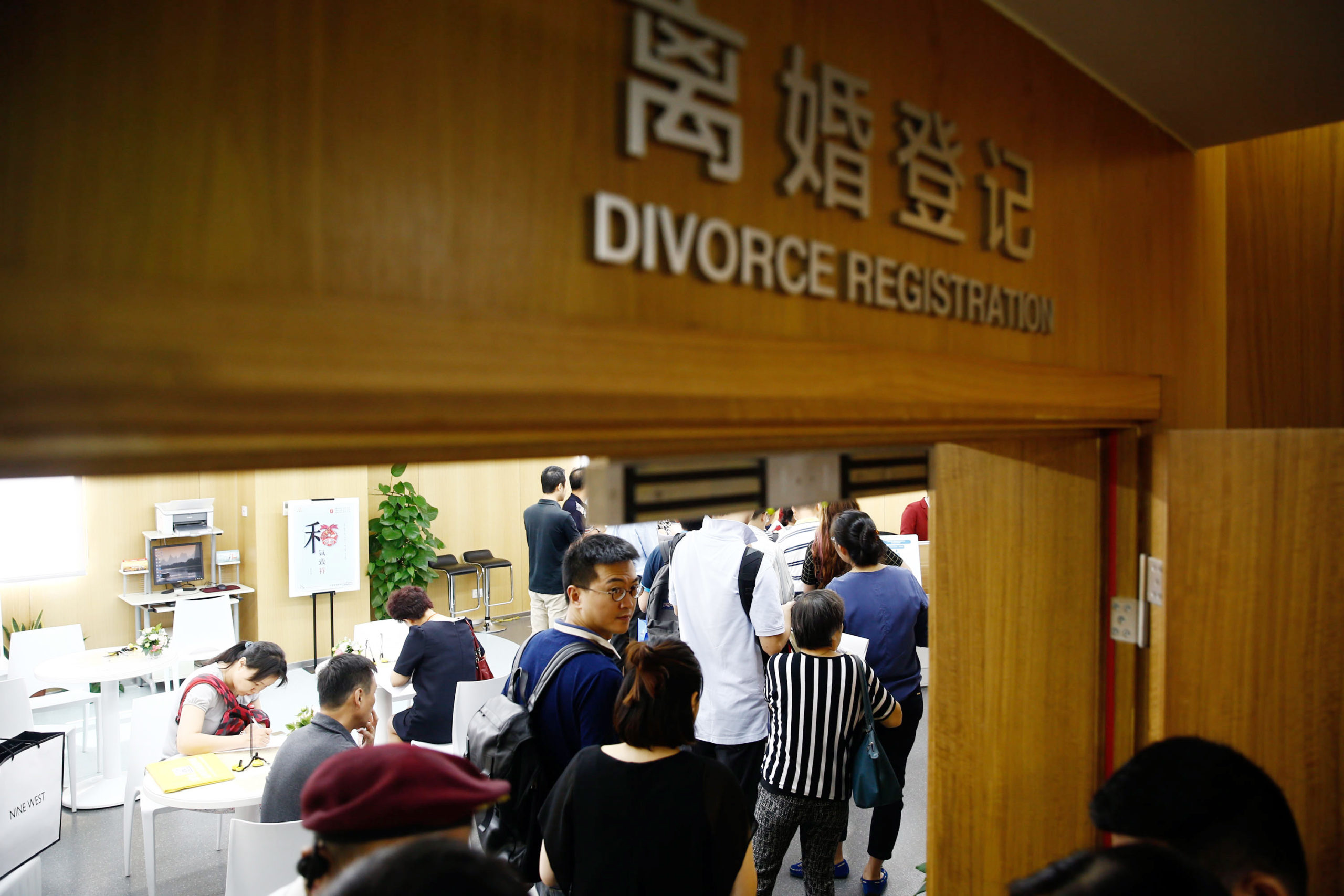Chinese divorce-seeking couples are choosing reconciliation after enduring 30-day “cooling-off” period
Written into China’s first-ever Civil Code, which passed in May of last year and came into effect this January, the “cooling-off” period forces divorce-seeking couples to re-think the situation and consider reconciliation because it makes it impossible to divorce impulsively.

The impact of China’s newly implemented divorce law, which requires couples to take part in a 30-day “cooling off” period before officially calling it quits, is being felt in multiple Chinese cities.
Data released by the civil affairs bureau of Wuhan, the capital city of Hubei Province, showed (in Chinese) that in January, it received divorce applications from a total of 3,096 couples. After undergoing 30 days of waiting, plus another 30 days for their separation requests to be processed, only 1,309 of them went through with ending their marriages. To put it another way, about 58% of those who initially filed for divorce changed their minds and decided to stay together during their mandatory waiting period.
According to local officials, Wuhan’s divorce rate dropped significantly in the first three months of 2021, down about 70% from the same time the year before. As a marriage officer in the city’s Wuchang District explained, the decline was largely due to the creation of the month-long “cooling-off” period.
Another factor was the introduction of “psychological guidance programs” at divorce offices, where couples seeking separations were required to fill out a questionnaire asking about their marital problems and to talk to a counselor. In a typical case cited by the officer, an emotional couple walked into his bureau, seemingly determined to obtain a divorce. But after a conversation with a counselor, who asked them what they had done to fix the relationship, the husband decided to call off the divorce and put in more work to save his marriage.
Written into China’s first-ever Civil Code, which passed in May of last year and came into effect this January, the “cooling-off” clause forces couples to re-think the situation and consider reconciliation because it makes it impossible to divorce impulsively.
The policy was controversial from the day it was first made public. To policymakers, the rule is a response to China’s rising divorce rate and a necessary attempt to save the institution of marriage, which has never been more important as China looks to reverse the country’s falling birth rate and manage its aging population.
But the law’s critics argue that the government should not stand in the way of couples who have decided to part ways, adding that a prolonged waiting period could make an already difficult situation even more painful, especially for spouses in an abusive relationship.
While there’s no national data about how many couples successfully obtained a divorce this year, local numbers seem to suggest that the “cooling-off” period has been effective in preventing what the government called “impulsive divorces.” Similar to the situation in Wuhan, in Dali, Yunnan Province, only 70 out of 281 couples who filed for divorce in January and February actually parted ways in the end (in Chinese).
But it might not be that more couples have become amenable to reconciliation, but rather some new, additional legal and technical hurdles. For example, divorce-seeking couples in Guangzhou, Guangdong Province, had to stay up late and beat scalpers to secure spots in an online reservation system because divorce appointments were so scarce.
Another possible reason for the decline is that there just aren’t many people left in the divorce pool following a divorce-filing frenzy late last year, when thousands of couples rushed to submit applications to dissolve their marriages as they feared that new post-pandemic conditions would complicate the process and compromise their freedom.






